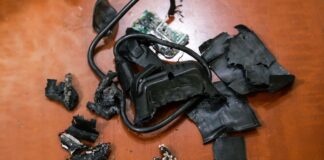An icon in the shape of an angle pointing down.
-/AFP via Getty Images
- Israel has been targeting Hezbollah’s leaders with a series of air strikes.
- Hezbollah’s leadership crisis may lead to internal power struggles and strategic shifts.
- Experts say more radical leaders could emerge, and they may strike back with devastating force.
Israel is continuing its relentless campaign to dismantle Hezbollah’s leadership.
Two weeks ago, Hassan Nasrallah, Hezbollah’s chief of 32 years, was assassinated in a targeted Israeli airstrike.
More recently, Israel’s military said it had killed a Hezbollah member who had been gathering intelligence against Israel in Syria’s Israeli-occupied Golan Heights.
Other Hezbollah leaders believed to have been killed by Israel include Fu’ad Shakar, the group’s strategic array commander, Ali Karaki, head of Hezbollah’s southern front, and Ibrahim Aqeel, chief of Hezbollah’s military operations directorate.
Meanwhile, Hashem Safieddine, Nasrallah’s cousin and the man widely touted as next in line to lead the group, has been missing since Israel struck Beirut’s southern suburbs last week.
Chris McGrath
Israeli Prime Minister Benjamin Netanyahu said on Tuesday that “Nasrallah’s replacement, and the replacement of his replacement,” had been killed by Israeli forces.” It’s unclear whether he was referring to Safieddine.
“Today, Hezbollah is weaker than it’s been for many, many years,” Netanyahu added.
While Hezbollah’s leadership has suffered a serious blow, experts believe that a power vacuum has emerged, paving the way for more radical leaders that could strike back with devastating force.
A fight for leadership
Mohammed Albasha, a US-based Middle East security analyst, told Business Insider that Hezbollah’s search for a new leader could lead to a “temporary power struggle or internal fragmentation” that could initially weaken its influence in Lebanon.
Albasha said this could destabilize the group and alter its “political and military strategies.”
However, he added that this would be temporary, and the conflict would likely escalate.
“There is a blow for the group, to be sure,” Antony Loewenstein, author of “The Palestine Laboratory,” told Sky News. “Far more people could rise up the rise. Far more radical people could emerge.”
KAWNAT HAJU/AFP via Getty Images
Writing in an essay for the Atlantic Council, a US think-tank, William F. Wechsler, a senior director at the Rafik Hariri Center and Middle East programs, said it’s worth remembering that Hezbollah became more dangerous after its founder, Abbas al-Musawi, was assassinated by Israel in 1992.
Wechsler pointed out that Musawai’s death was the catalyst for a series of terrorist attacks, including a suicide bombing on the Israeli embassy in Buenos Aires by a member of the Islamic Jihad Organization, an Iran-backed group linked to Hezbollah.
Mireille Rebeiz, Chair of Middle East Studies at Dickinson College in Pennsylvania, echoed that sentiment in an essay for The Conversation.
“Israel may not necessarily get its desired impact,” said Rebeiz.
“Nasrallah followed Al-Musawi’s footsteps, and under his leadership, the group grew its recruitment, arsenal, and reach inside and outside Lebanon,” she added. History may now repeat itself.
A widening conflict
There are fears that conflict could spark a wider war in the Middle East.
As well as taking out Hezbollah’s leadership with strikes in Lebanon and Gaza, Israel is also weighing up a counterattack against Iran after it launched a ballistic missile attack.
Experts predict that Israel could target the country’s oil facilities and nuclear sites or plan the assassinations of key military advisors.
Ahmet Kaya, a principal economist at the UK’s National Institute of Economic and Social Research, previously told BI that the growing conflict could “exacerbate the instabilities in the global economy, further increase the uncertainties, harm disinflationary efforts, and eventually reduce the global GDP growth.”
The Bank of Israel said in May that the war would cost a total of around $66 billion by the end of next year, which is equivalent to roughly 12% of Israel’s GDP, per CNN.
Israel’s finance minister previously described the war as the “longest” and “most expensive” conflict in the country’s history.
“The situation now is fluid and it’s hard to predict what will happen next,” said Rebeiz. “But the fresh wave of violence may only reinforce Hezbollah’s resolve.”


